AGGIE GREEN FUND  TEXAS A&M UNIVERSITY
TEXAS A&M UNIVERSITY
AGGIE GREEN FUND  TEXAS A&M UNIVERSITY
TEXAS A&M UNIVERSITY
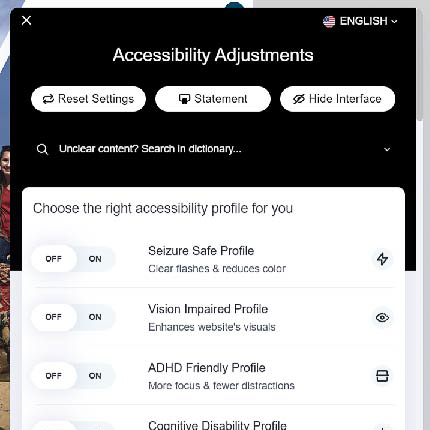
Create digital resources for international opportunities to combat the lack of study abroad printed materials created from the pandemic. This project's overall purpose is to increase participation in study abroad from underrepresented student groups, create a better sense of belonging and acclimation process for international students, and work to advance the United Nation's Sustainable Development Goals. The project aims to develop highly accessible resources for students without creating waste and to be an industry leader in providing these types of resources.
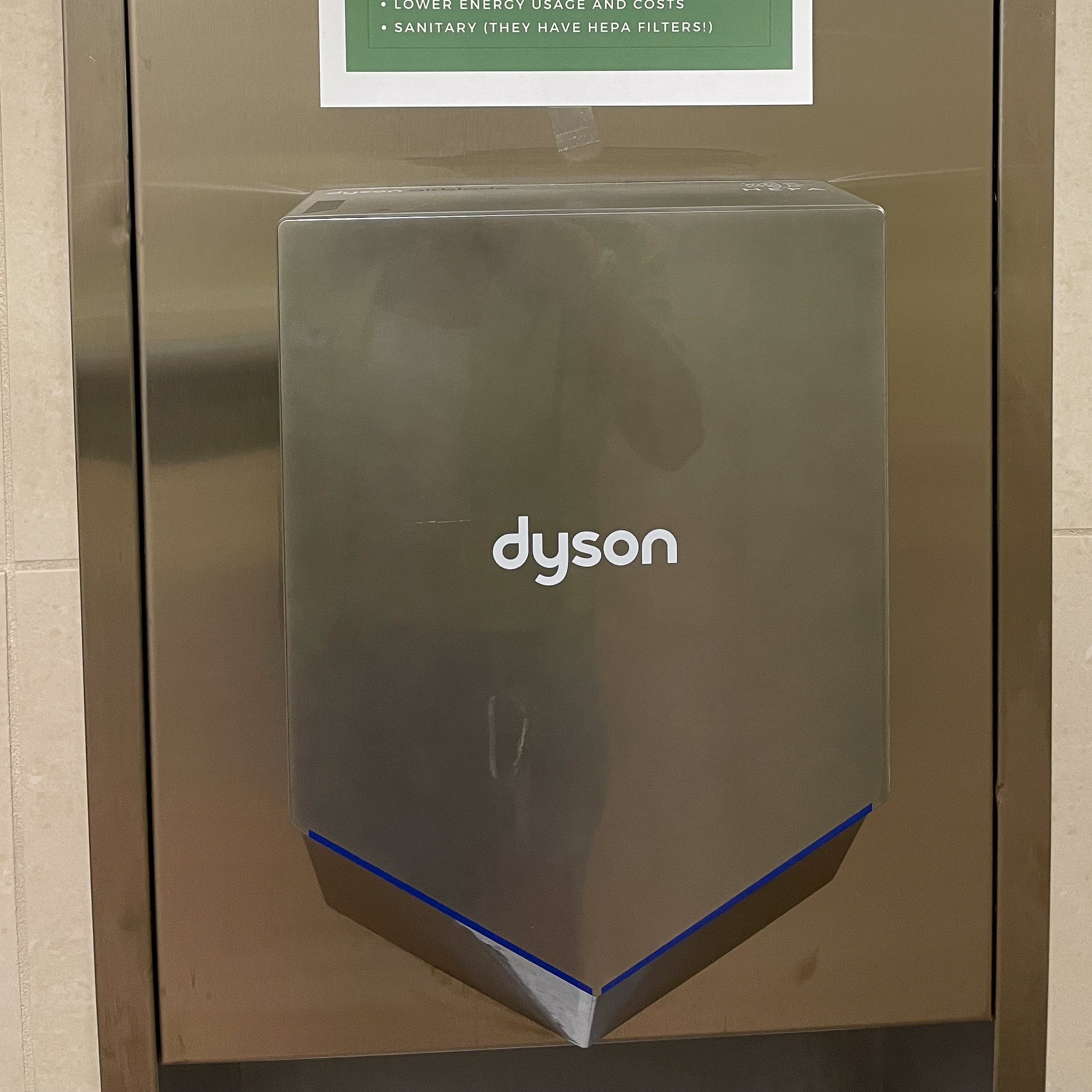
Install Dyson Airblade hand dryers in Evans Library bathrooms. Hand dryers prevent the need for excessive use of paper towels, especially since Evans is such a high-trafficked building on campus. This project will encourage the campus community to choose a more sustainable option compared to paper towels throughout their lives.
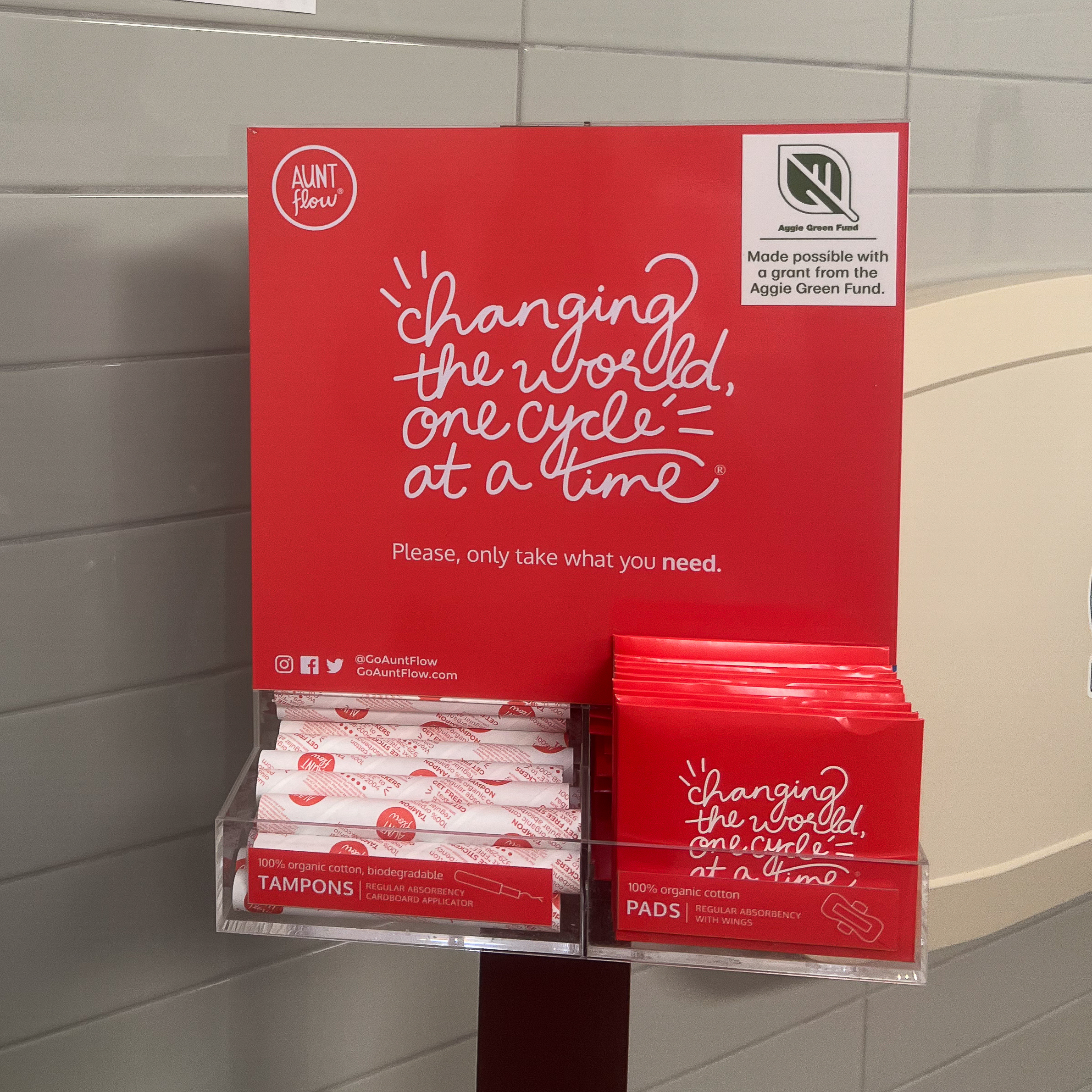
Install Aunt Flow steel menstrual product dispensers in Evans and the Annex. The main goal for this project is to help Aggies who are in need of menstrual products. Period poverty is a significant issue and it is estimated that around 1 in 10 college students who need menstrual products cannot afford them. Aunt Flow creates menstrual products that are made with 100% organic cotton and are plastic free, making them a more sustainable alternative to the standard pads and tampons. Providing access to menstrual products on campus will enable students to attend classes and after school activities if their period starts unexpectedly.
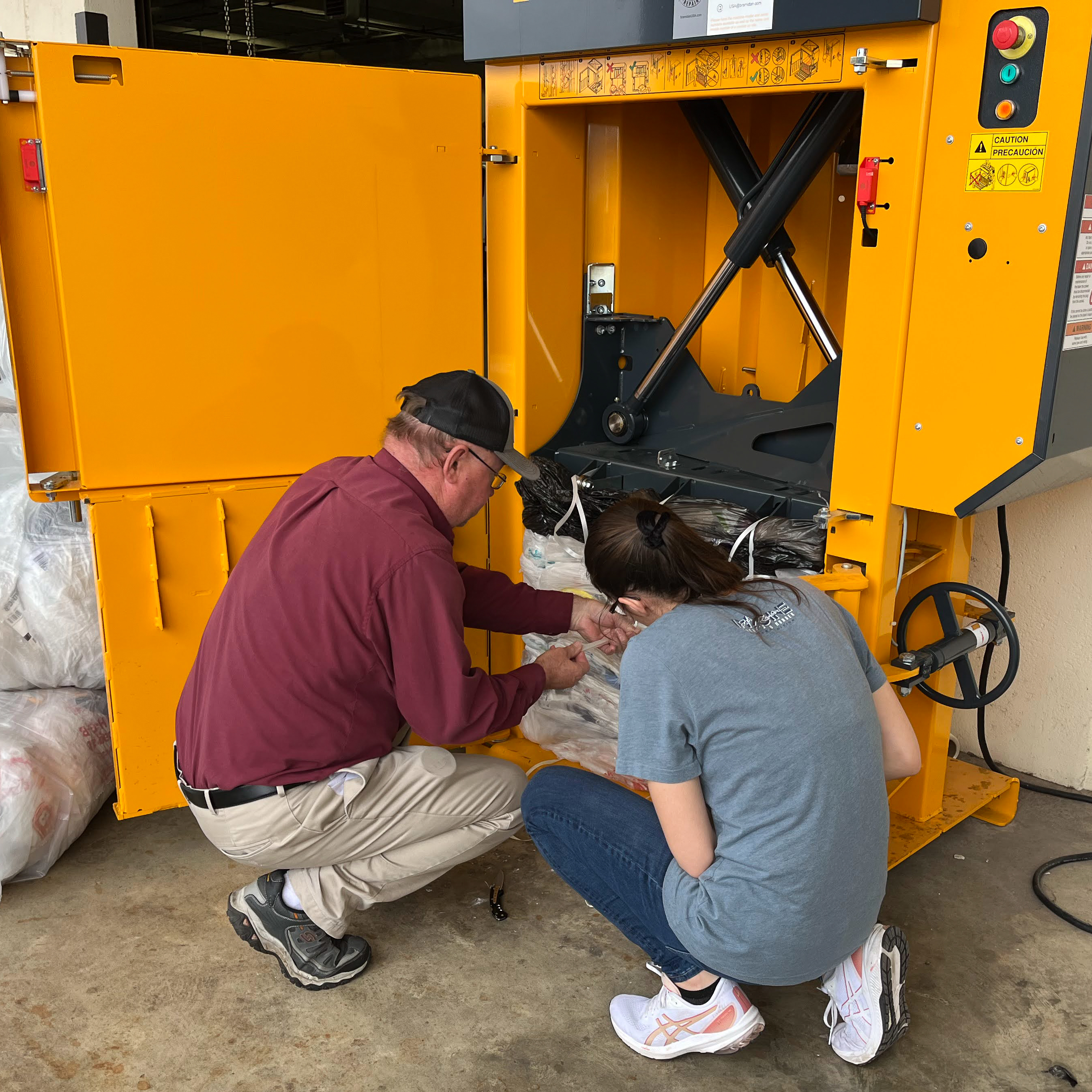
Expand the TREX plastic film recycling program that was started in 2018. As of August 2022, the program has diverted 5,200 lbs of plastic film from its five locations. The goal of this project is to expand the current locations across campus. The film will be sent to a partner facility in Tyler, Texas to be recycled, through a new advanced recycling technique. This project will address the environmental aspect of sustainability by using recycled materials in production, which saves natural resources and energy, and reducing waste sent to landfills.
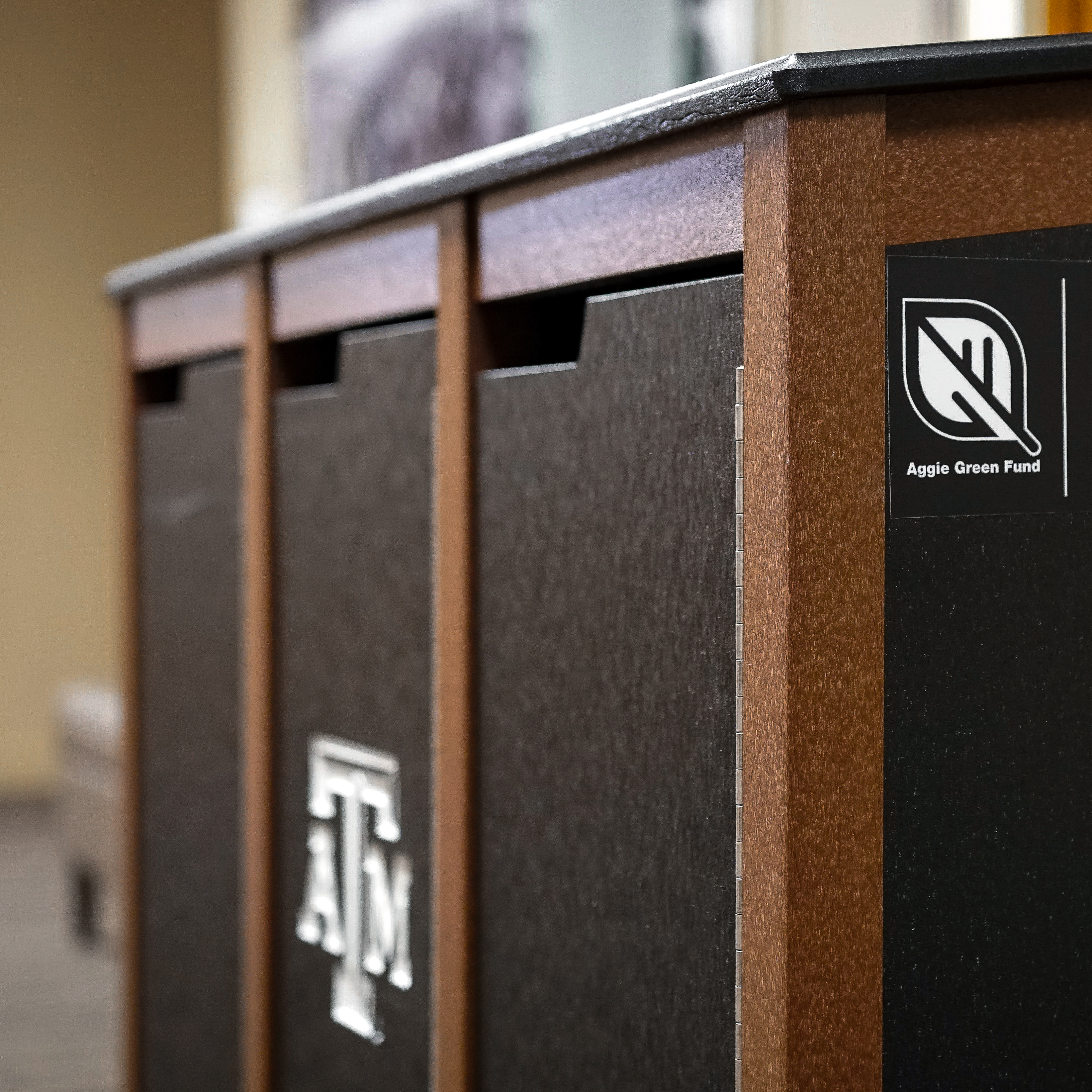
Install recycling bins in Rudder Tower. The overall goal is to increase recycling in Rudder Tower which serves as a multipurpose hub for event planning and hosting. This project contributes to environmental sustainability as increasing recycling serves the effort of diverting waste from landfills which contribute to pollution. The increase in recycling units will also show the university’s commitment to a better future through recycling.
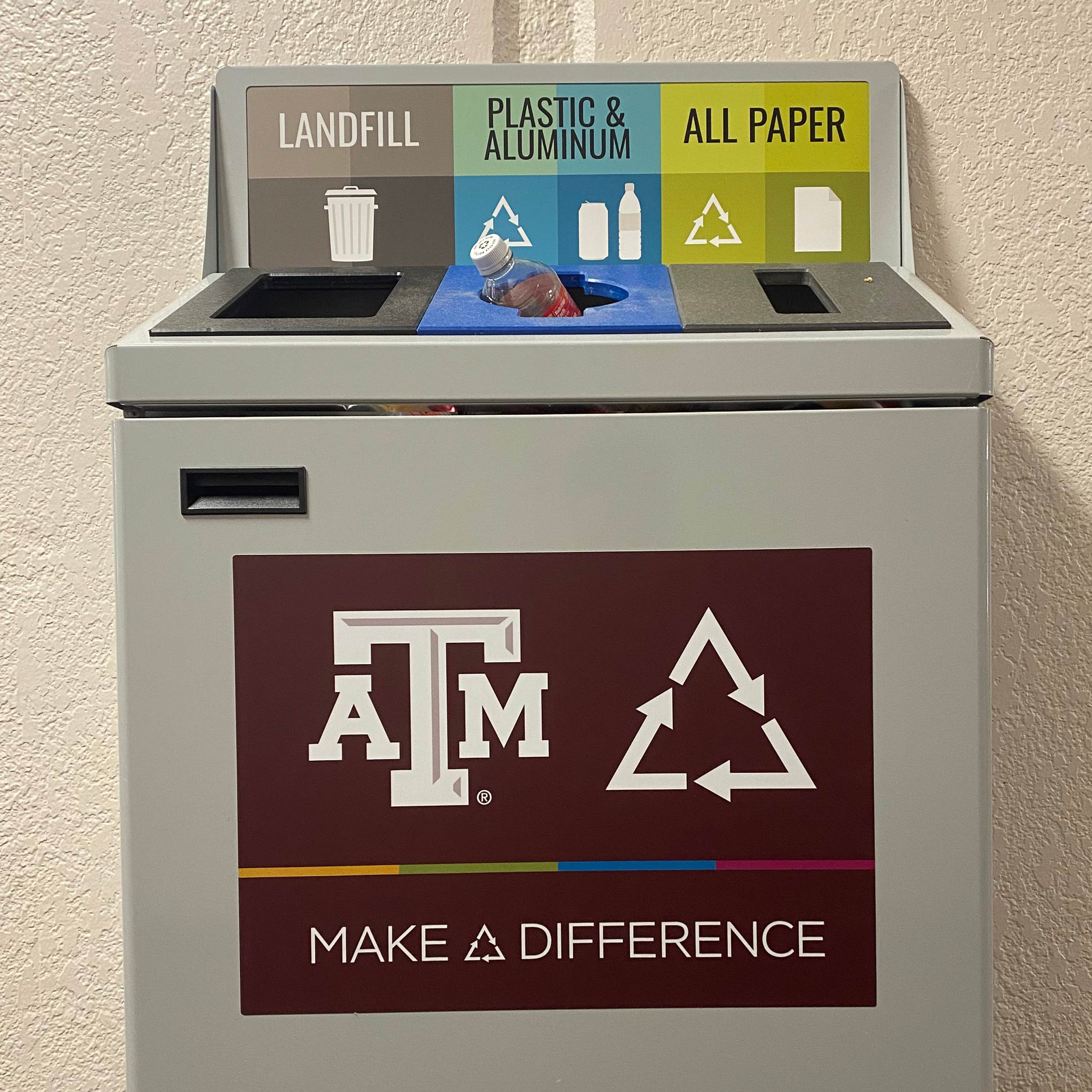
Expand the accessibility of recycling in residence halls by providing stainless steel, 3 stream receptacle recycling bins for Moses, Underwood, FHK, Lechner, and McFadden. This project intersects personal and environmental sustainability awareness. This project is to help further student contributions to effective waste management for the TAMU community.
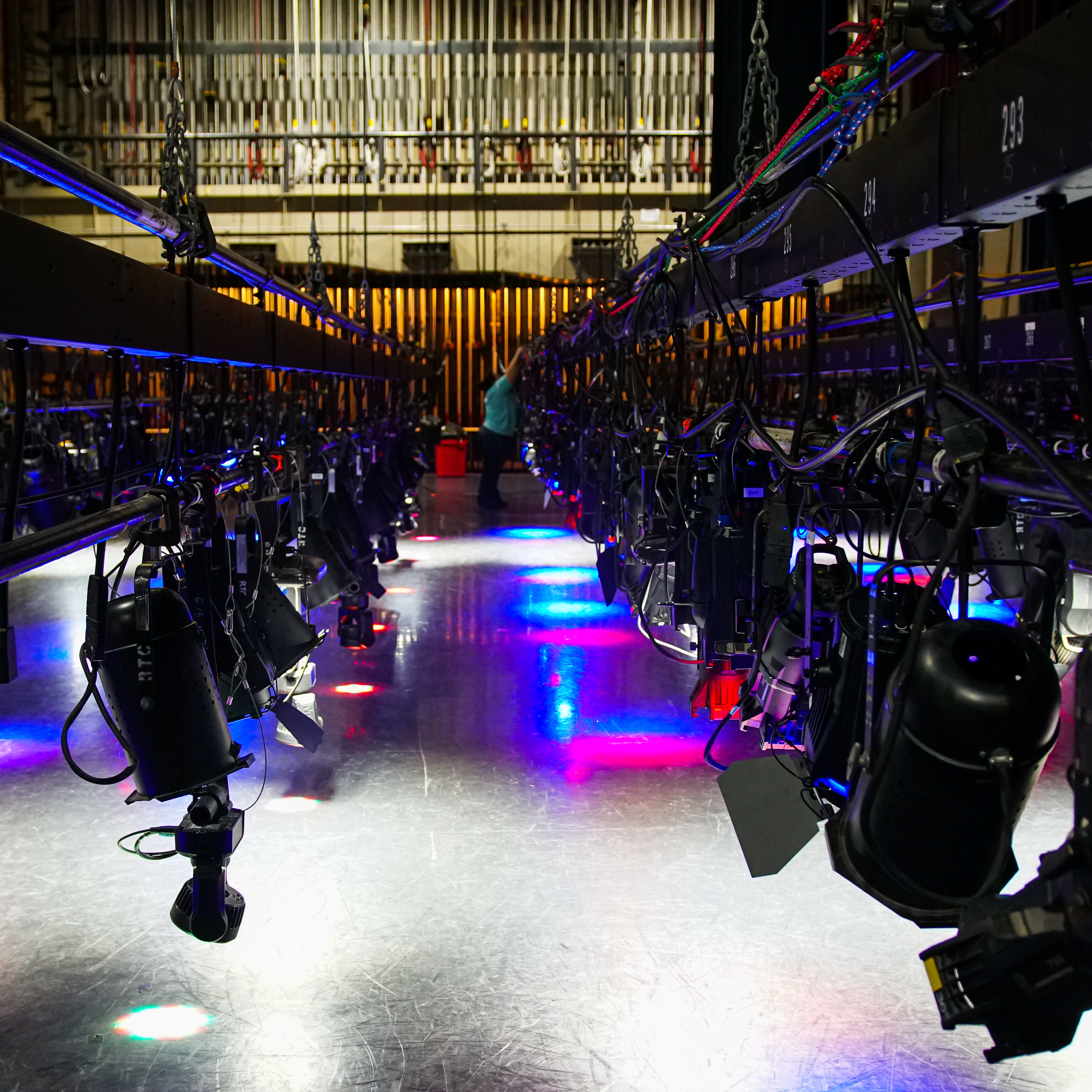
Replace the incandescent lamps currently used in the PAR 64 fixtures in Rudder Auditorium for LED lamps. The LEDs will use considerably less electricity; possibly as much as 90%. The direct impact is the reduction in cost of electricity, which is environmentally and economically beneficial. The indirect impact is the benefit to students and the community who utilize the auditorium.
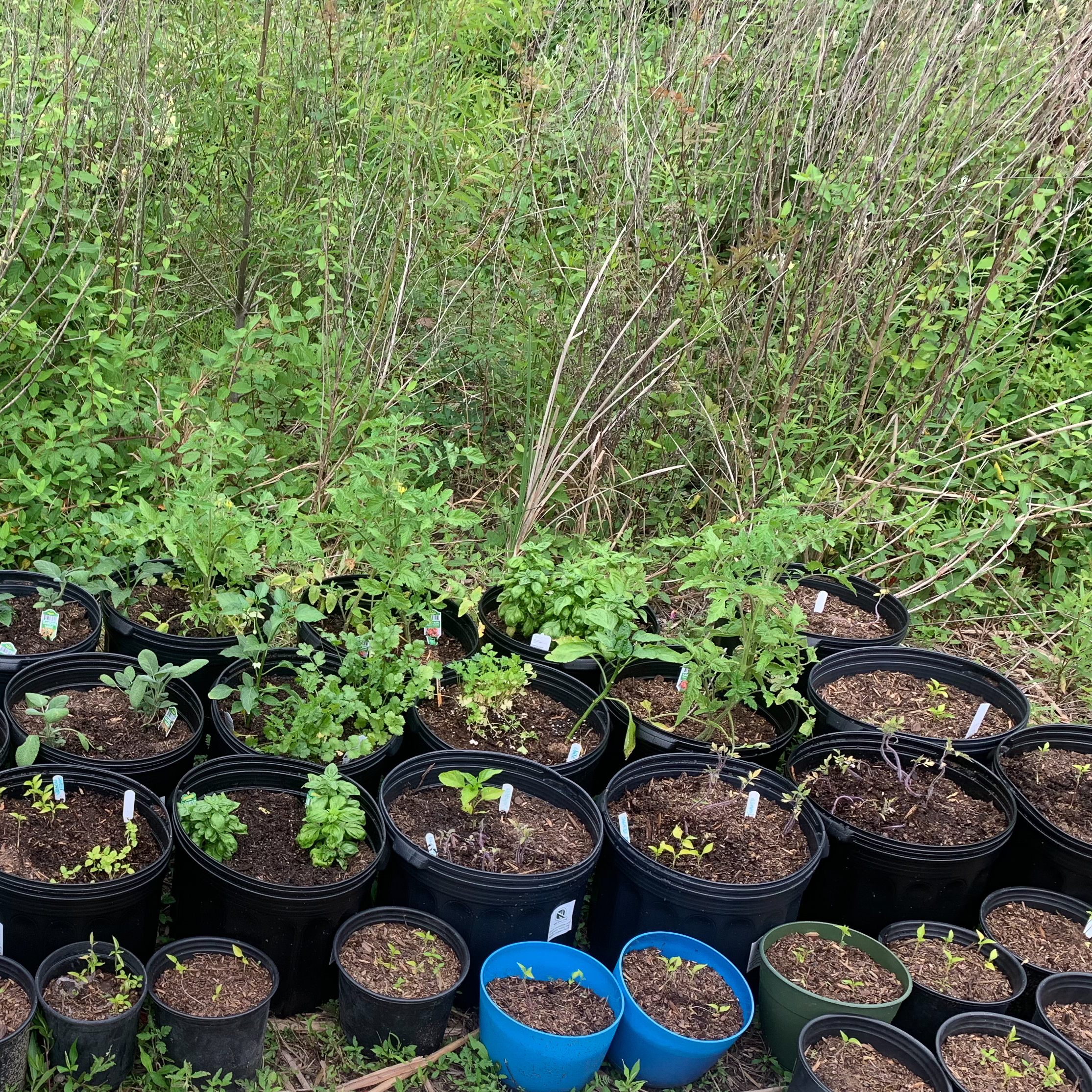
Support engaged student learning, community ties, and outreach through sustainable agriculture and food security engagement. Students will work to cultivate herbs and vegetables to learn about local food systems, seed saving, and food justice. Distribution of educational materials and produce to immigrant families in partnership with the Brazos Interfaith Immigration Network (BIIN). This project will educate and empower immigrant families to grow their own food promotes food security, and broader sustainable agricultural initiatives in collaboration with Howdy Farm.
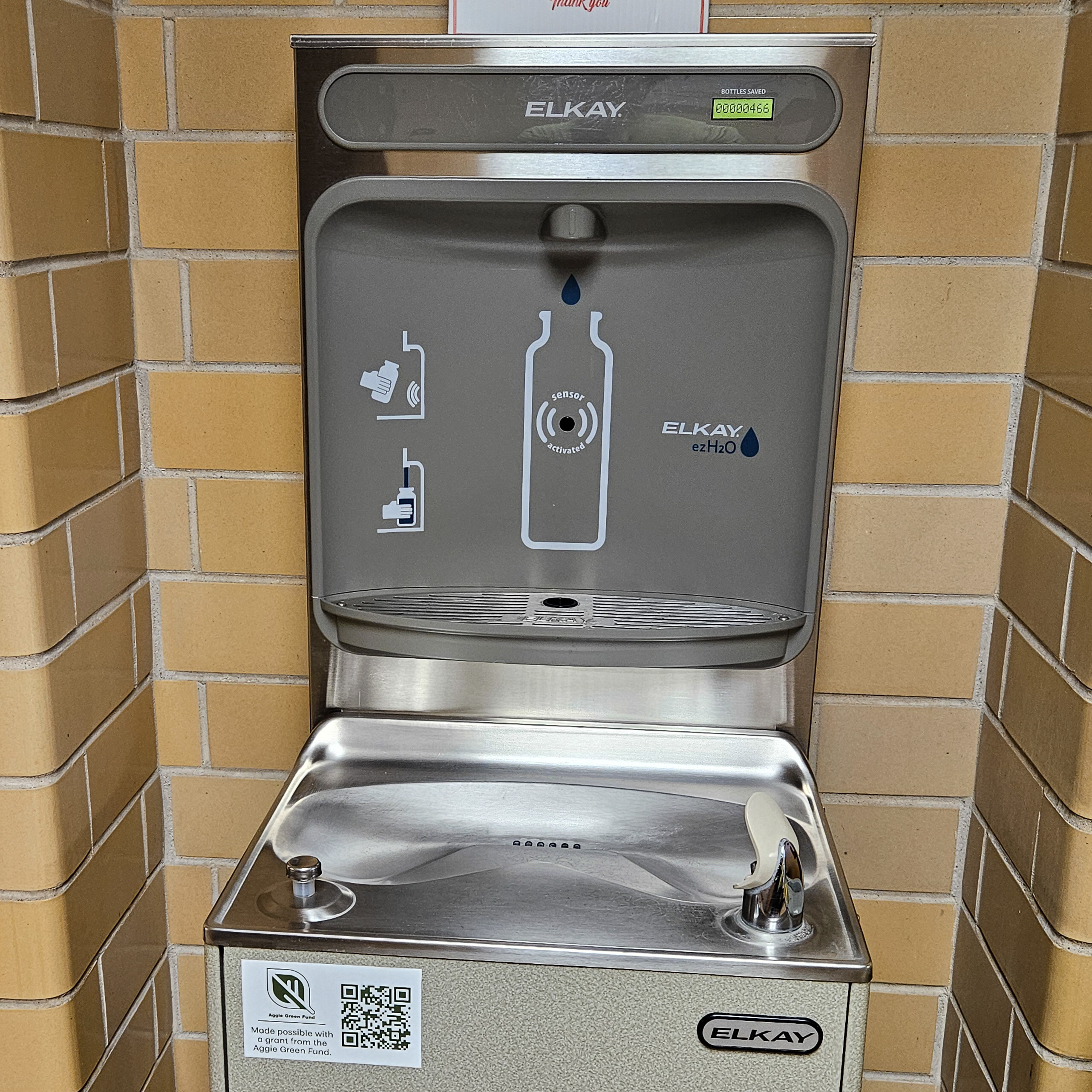
Install a bottle filling water station on the first floor of the Anthropology building, where there are many labs, offices, and classrooms and frequented by faculty, staff, students, graduate students, and visitors. A fountain will provide a more accessible, better and cleaner option for water, and encourage the use of reusable containers, working to achieve our common goal of reducing waste.
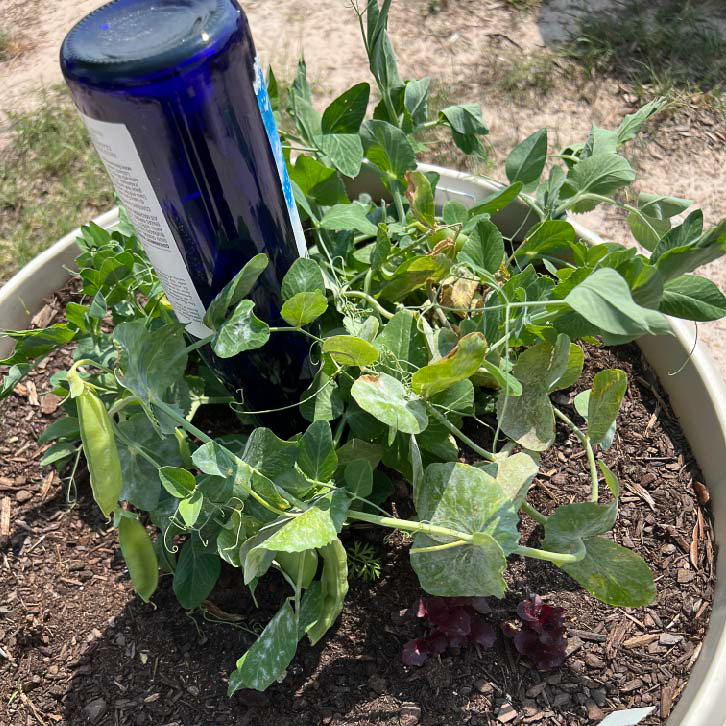
Supports the premise that everyone should have food security by providing container gardens. Container gardening is the most convenient form of gardening for college students because it is versatile, mobile, easily accessible, and a great option for beginners and experts. This project’s goals are to educate residents about food production and sustainable living and help students with food insecurity by providing them with a source of food and training them on how to do container gardening at home. Students will directly apply their education within the garden setting on campus.
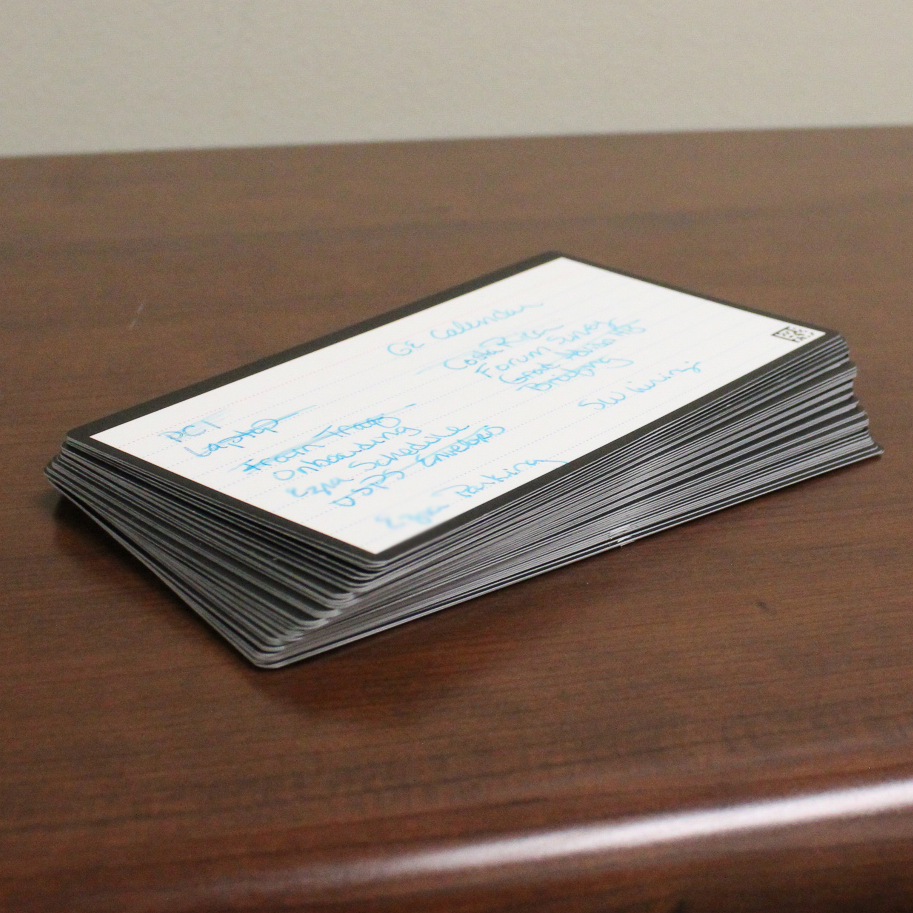
Minimize overall use of paper products in the Education Abroad office by providing staff with Rocketbook products. Rocketbook products are reusable notebooks and reusable cloud cards. This is a step towards Education Abroad’s large-scale project to incorporate the United Nations Sustainable Development Goals within their office and programming abroad.
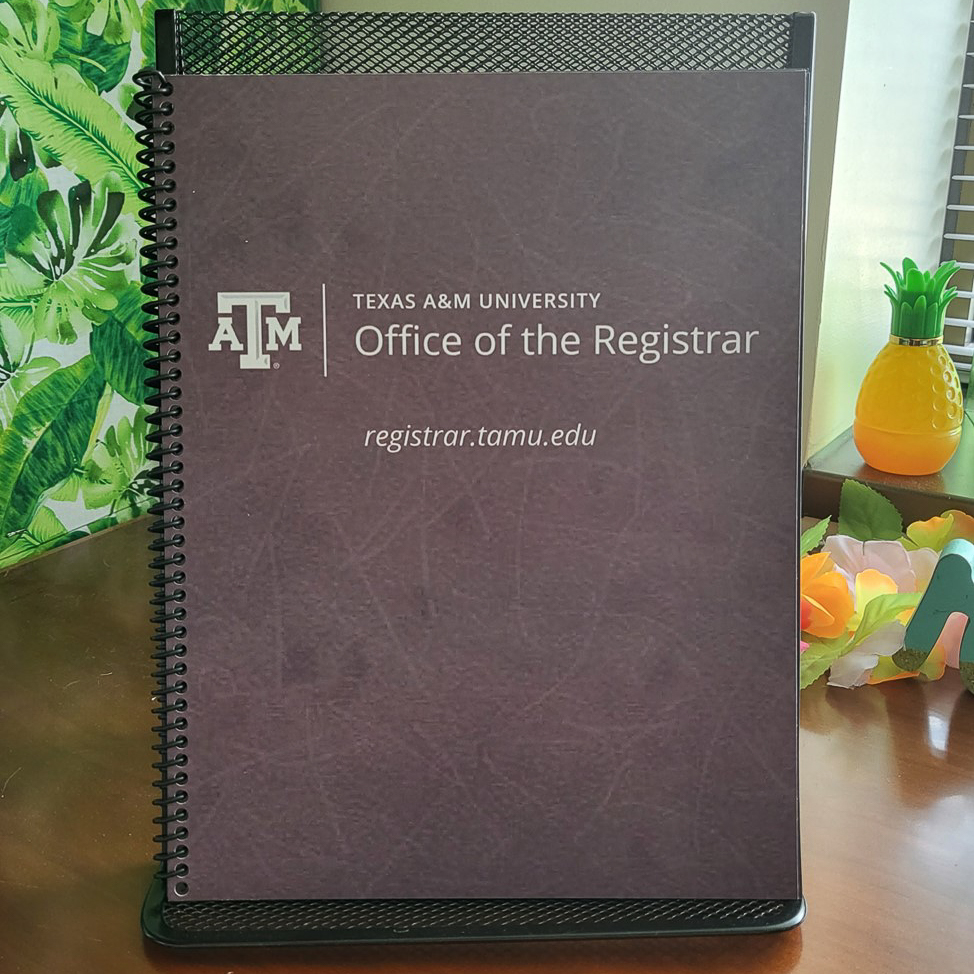
Provide Office of the Registrar staff with reusable notebooks with pages designed specifically to help with organization and ease of taking meeting and training notes. This will allow for identification of several key paper use areas that can be reduced while also being beneficial in day-to-day activities. The purpose is to further decrease the amount of paper used by the office, whether that be notepads, notebooks, sticky notes, or copy jobs- which will also reduce the energy used for printing. The goal is that with customization, it will encourage staff to use them more frequently and engage them in thinking of other ideas that contribute to the sustainability efforts in the office, at Texas A&M, and globally.
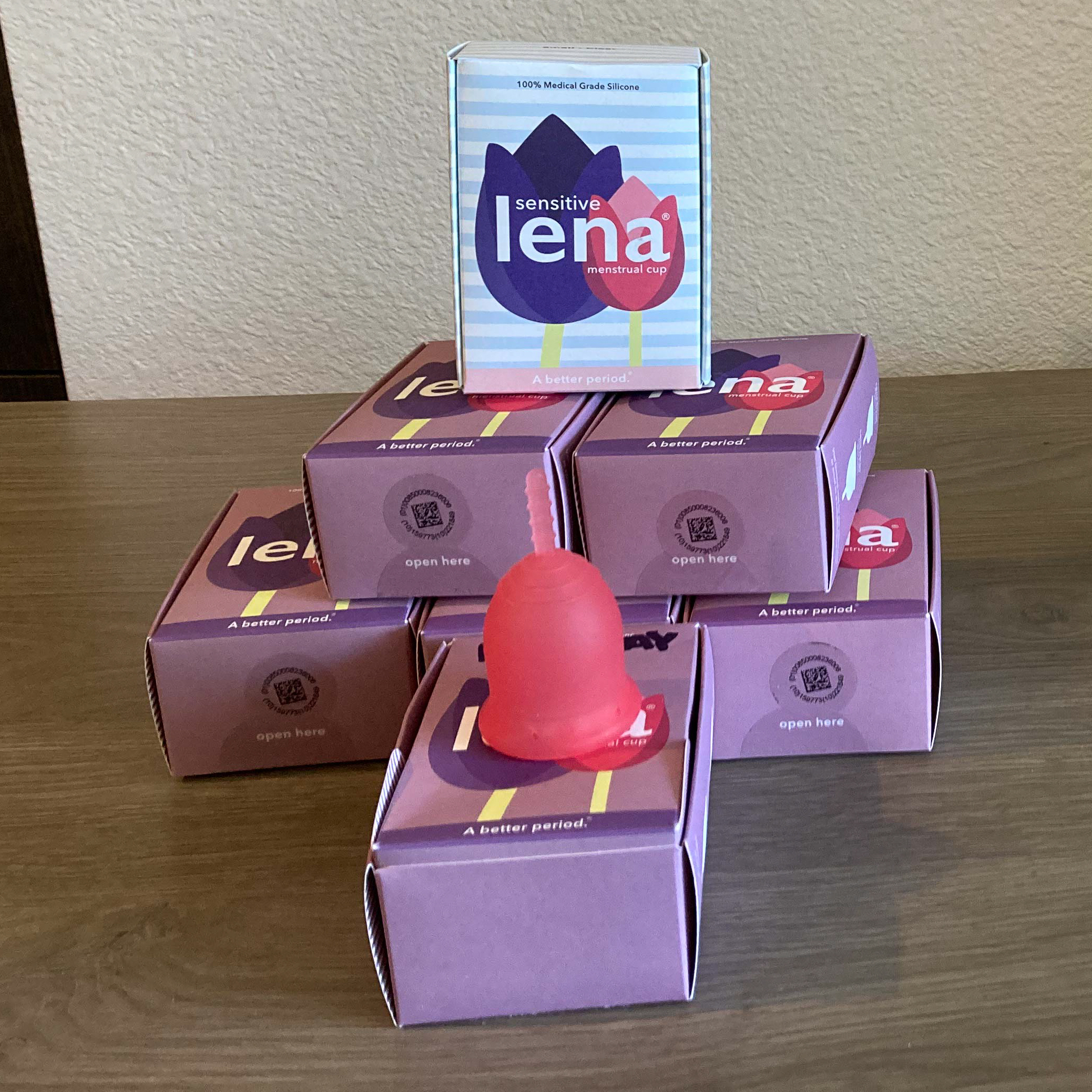
Provide a supply of 140 menstrual cups to Texas A&M's Women's Resource Center to be distributed freely to students on the basis of need. The primary goal of this project is creating an accessible supply of menstrual cups on campus will potentially prevent thousands of disposable products from ending up in landfills. The increased accessibility of these products will encourage their use and help circumvent future financial and environmental costs from disposable menstrual products.
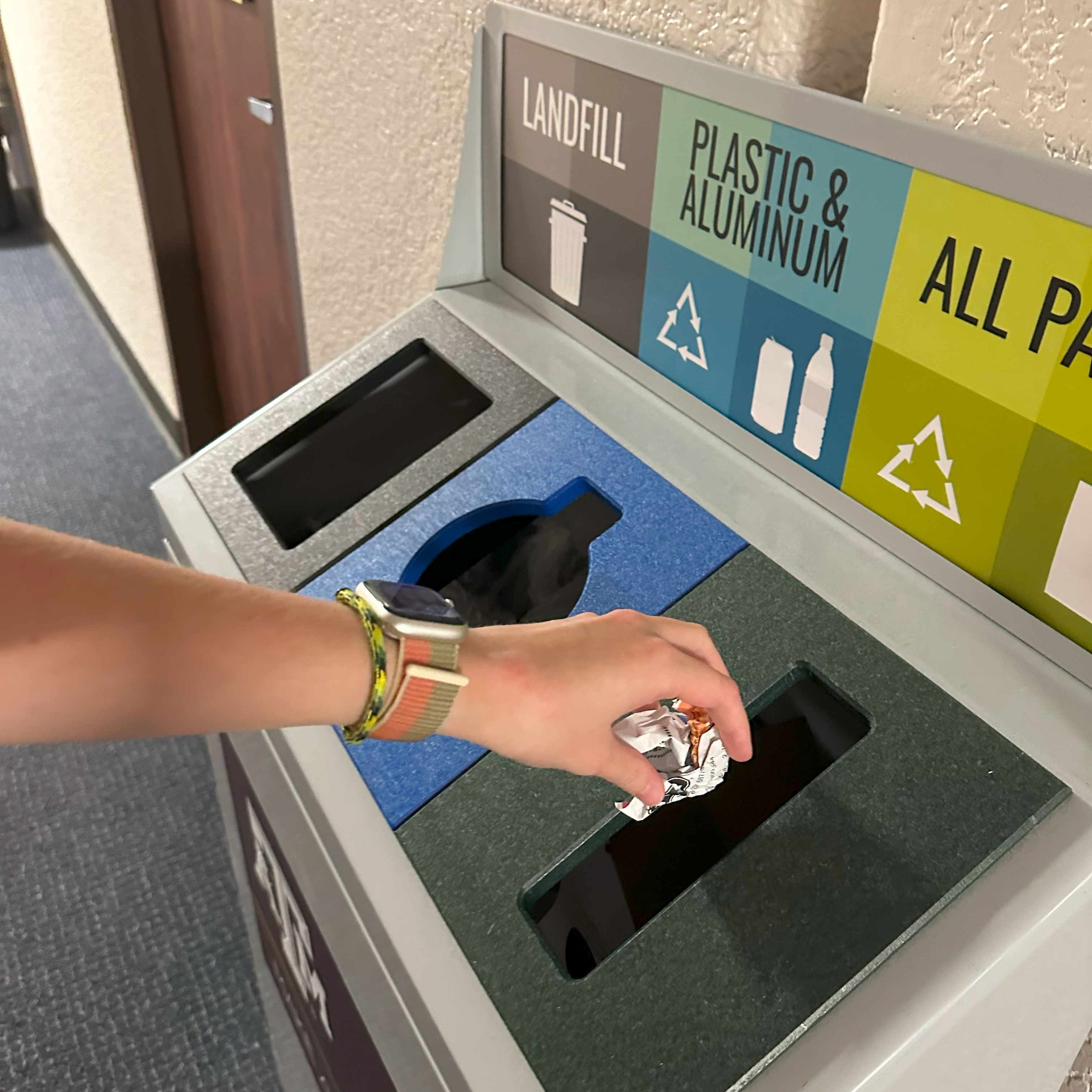
Provide recycling bins for the Underwood Residence Hall. Students are more likely to recycle with the bins in a convenient location. An increase in recycling will be achieved by making recycling more accessible. Resident Advisors will also be provided with informational pamphlets to present during hall meetings that cover the importance of sustainability.
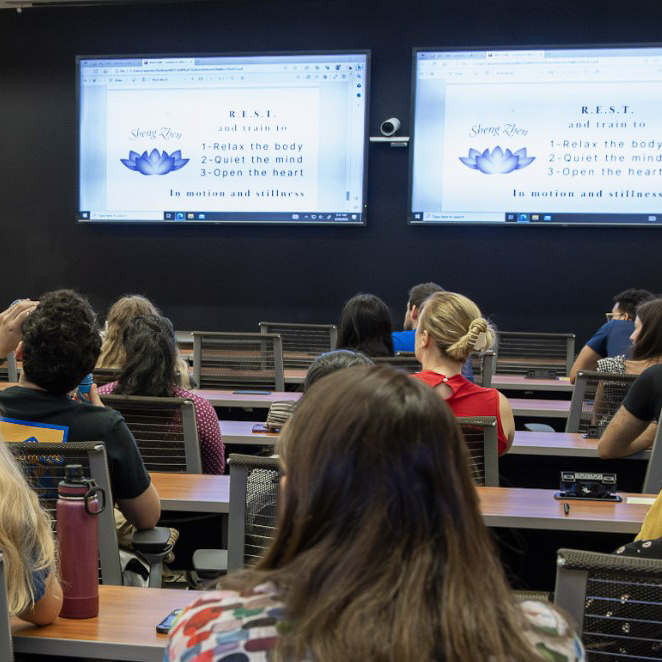
Address complex factors surrounding the expanding crisis of secondary trauma, compassion fatigue, and burnout among Texas A&M Health members known to have been heightened by the COVID-19 pandemic. This program will overcome the pervasive sense of isolation and anxiety by fostering a community of belonging. This will be achieved through proven meditation techniques offered in a communal setting to HSC members across the Bryan and College Station HSC campuses. By facilitating a safe and welcoming environment, the project team will overcome traditional academic barriers of rank, siloed affiliation, and preconceived notions about the power of improving one’s self through the support of one’s peers.
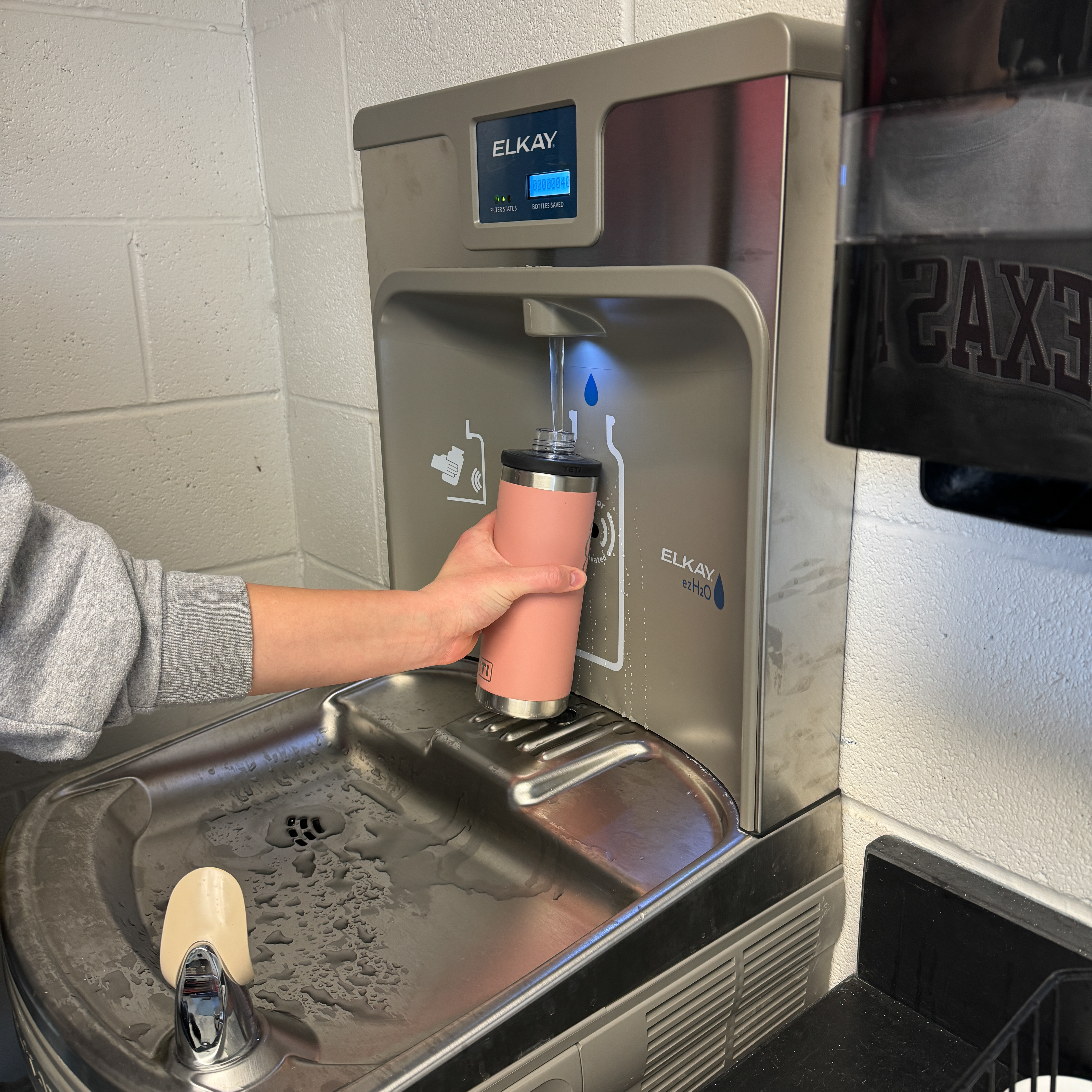
Install a water fountain and bottle filling station at the Winnie Carter Wildlife Center. Installing a water fountain and bottle filling station would ensure proper student access to clean drinking water and would promote sustainability measures by encouraging students to bring reusable water bottles to fill for use throughout their shifts. The goal is to reduce plastic waste by encouraging the use of reusable water bottles.